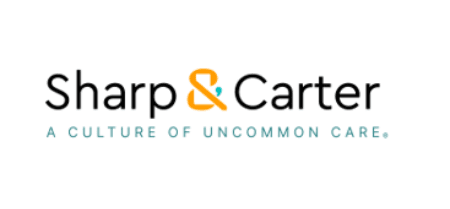Strategies for Workplace Wellbeing and High Performance Leadership
Maintaining workplace wellbeing and high-performance leadership has become increasingly important as we advance as workplaces. In recognition of the varying stress periods across different functions and the importance of creating psychologically safe and high-performing cultures, our NSW Finance & Accounting recruitment team recently held a webinar event to share expert strategies and insights. While the end of the financial year is a significant stress period for the finance and accounting industry, these insights are relevant to all sectors. Our aim was to provide valuable strategies to help leaders and employees navigate these challenges effectively, encouraging resilience and productivity.
Our latest webinar event hosted by Tom Clarke from our NSW Finance & Accounting recruitment team, invites experts Kate Connors and Feyona Lau to offer strategies for fostering resilient and inviting work environments.
Kate Connors, a psychologist specialising in executive wellbeing and workplace mental health, and Sharp & Carter’s own Dr. Feyona Lau, an organisational effectiveness and leadership development specialist, share their insights on navigating challenges like low staff morale, engagement, and productivity. They discuss the mental health impacts of global events, provide practical advice on resilience building and smart work design, delve into the VUCA concept, and highlight the importance of rest and recovery for cognitive and emotional rejuvenation.
The VUCA Concept and Why It Matters
In the context of modern organisational challenges, VUCA—an acronym for Volatility, Uncertainty, Complexity, and Ambiguity—becomes particularly relevant. This concept is crucial as it encapsulates the unpredictable and often unstable nature of today's business environment. Effective communication is indispensable in a VUCA world; as Dr. Feyona Lau emphasises that “without information people are more likely to begin to hypothesise and will fill that vacuum themselves, either correctly or incorrectly. That ongoing communication is critical.” Kate supports this idea in saying that, “humans are incredibly forgiving in the context of volatile and uncertain times…the bit that tends to create the negative emotion is when there is something that humans see as entirely within the capacity of the organisation to control, yet they don't control it.” This is the direct reason for communicating openly within an organisation, especially in the current VUCA times.
Navigating Communication and Motivation Challenges
Effective communication is crucial for maintaining employee morale and motivation during economic uncertainties and organisational flux. Consistent and transparent communication serves as a critical anchor for employees in turbulent times. Over-communicating, even without new information, can enhance engagement and reduce speculation. Dr. Feyona Lau emphasises that such communication "anchors and validates employees," creating a stable environment. Kate Connors adds that keeping communication lines open "helps employees stay engaged and reduces speculation."
Key strategies to navigate these challenges include maintaining strong connections with leadership through regular check-ins and open-door policies. Feyona notes that "aligning messages across all organisational levels instills stability, hope, and motivation." Networking with peers also fosters a sense of community and shared purpose, especially in multinational organisations. Empowering employees to focus on what they can control enhances job satisfaction and productivity. Clear role expectations and transparent performance metrics are vital. Providing guidelines for career progression and pay increases helps manage expectations, particularly among young professionals.
3 Strategies for Building High Performance Leadership
To cultivate an environment where employees can excel, leaders must adopt strategies that support and empower their workforce, design work smartly, and prioritise rest and recovery. This approach not only enhances productivity but also fosters a resilient and satisfied team capable of navigating challenges effectively.
1. Supporting and Empowering Individuals
Supporting and empowering individuals is foundational to high-performance leadership. Kate Connors emphasises the importance of resilience building and capacity development. Providing access to internal and external wellbeing resources, such as Employee Assistance Programs (EAP), coaches, and mentors, is crucial. "When employees feel supported and have access to the resources they need, they are more likely to perform at their best and navigate challenges effectively," Kate notes. She further adds, "empowerment is not just about giving resources, but also about fostering a culture of trust and autonomy."
2. Smart Work Design
Smart Work Design is a helpful framework for designing meaningful and motivating work. Created by Sharon Parker and her team from Curtin University, the model outlines key components for SMART work: Stimulating, Mastery, Agency, Relational, and Tolerable Demands. These themes help to create stimulating work, ensure role clarity, promote autonomy, foster relationships, and manage work demands to prevent burnout and enhance job satisfaction. Dr. Feyona Lau highlights, "by designing work that is engaging and manageable, leaders can significantly boost both productivity and employee satisfaction." She also mentions, "Smart Work Design is about striking the right balance between challenge and support."

3. Prioritising Rest and Recovery
Rest and recovery are essential for maintaining cognitive and emotional rejuvenation. Embedding frequent breaks and learning to switch off from work effectively is necessary for sustainable high performance. Kate adds, "it's about intention and skill-building; true rest requires effort and practice, but it is indispensable for long-term success." Ensuring that employees have the tools and understanding to prioritise their wellbeing can lead to a more resilient and productive workforce." Leaders need to model rest and recovery themselves to set a precedent for their teams," Kate emphasises. For additional tips on promoting work-life balance, read our article on work-life balance strategies.
Sharp & Carter’s Culture of Uncommon Care
Sharp & Carter Recruitment Agency’s ‘Culture of Uncommon Care’ acknowledges how caring for employees’ wellbeing is essential for a sustainable and resilient organisation. This aligns seamlessly with strategies like supporting and empowering individuals, Smart Work Design, and prioritising rest and recovery. We provide resources such as EAPs, coaching, mentoring programs and development sessions for our employees to ensure that everyone feels valued and supported within the business.
Having Feyona as our dedicated High Performance & Wellbeing Director is a testament to our commitment to employee wellbeing. With over 20 years of experience in both executive and non-executive roles across diverse industries, Feyona holds a Doctorate of Psychology (Organisational) and is a Registered Psychologist of Victoria. She is also a member of both the Australian Psychologists Society (MAPS) and the Australian Association of Careers Counsellors (AACC). She specialises in leadership coaching with a focus on emotional intelligence, resilience, and wellbeing. Her strategic thinking and hands-on execution are key to designing and implementing comprehensive wellbeing initiatives for our employees.
Feyona's role extends beyond the conventional boundaries of HR; she is dedicated to promoting a thriving work culture. By blending her extensive expertise in leadership development with her passion for fostering sustainable fulfillment and high performance, Feyona strengthens our 'Culture of Uncommon Care.' This initiative provides unique and tailored support for our employees, enriching their overall health, wellbeing, and productivity. This embodies our mission statement: 'To be a catalyst for a new era of work - where organisations unlock potential through prioritising people above all else'. Feyona’s work also aligns with our core values of Care, Generosity, Trust, Humility, and Excellence. By championing these values, our employees will achieve excellence inside and outside of the workplace.
Improving Leadership and Wellbeing in Modern Workplaces
Our recent webinar highlighted key strategies from experts Kate Connors and Dr. Feyona Lau on supporting and empowering individuals, Smart Work Design, and prioritising rest and recovery. By addressing systemic organisational issues and the role of leadership in sustainable high performance, this piece equips professionals with tools to create resilient workplaces. Whether you're a leader or an individual managing your wellbeing, the insights shared are a gateway to fostering an inclusive and valuable workplace.
Don’t hesitate to reach out to our webinar host, Tom Clarke, or any member of our Finance & Accounting team to discuss these themes further and how you can enhance wellbeing and leadership within your organisation.
Visit our ‘About Us’ page to learn more about our people-first culture, and values pillars that strengthen our community-driven approach.


.png)


.png)
.png)
